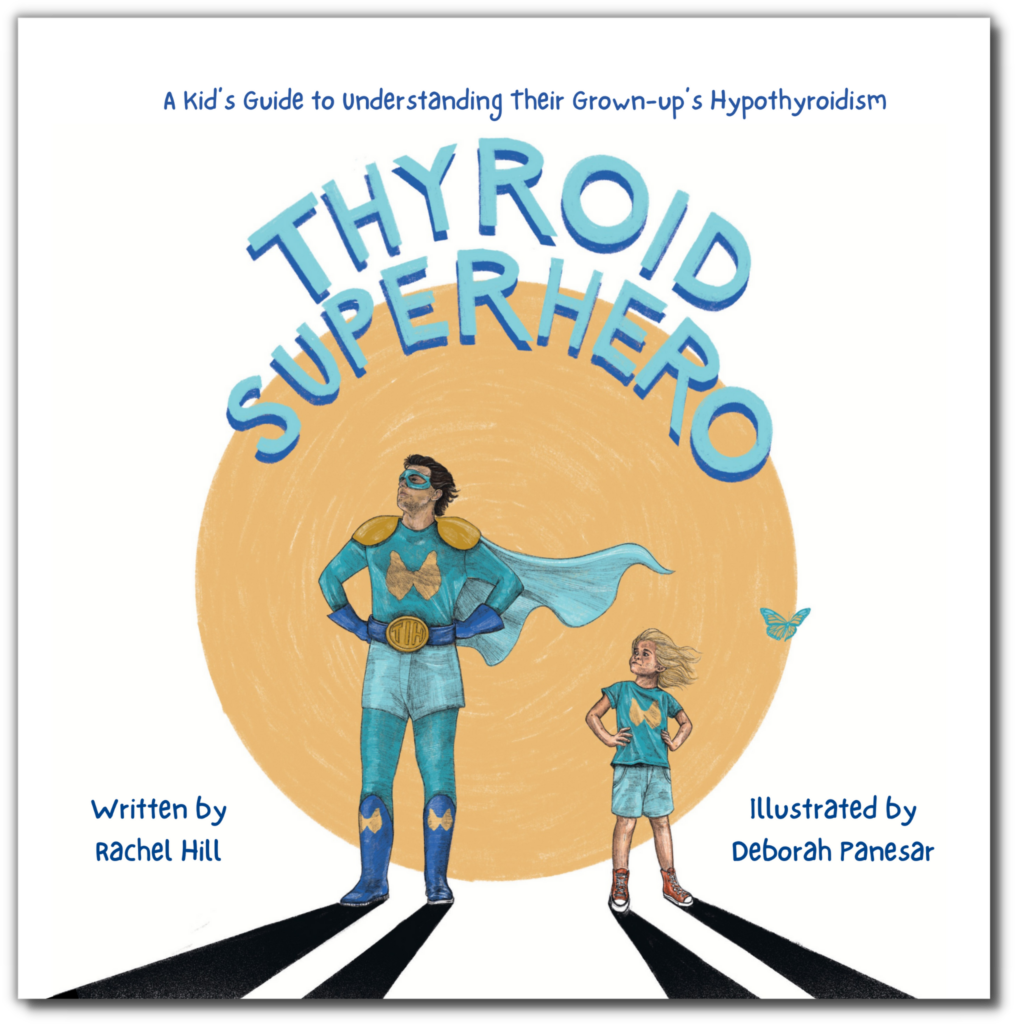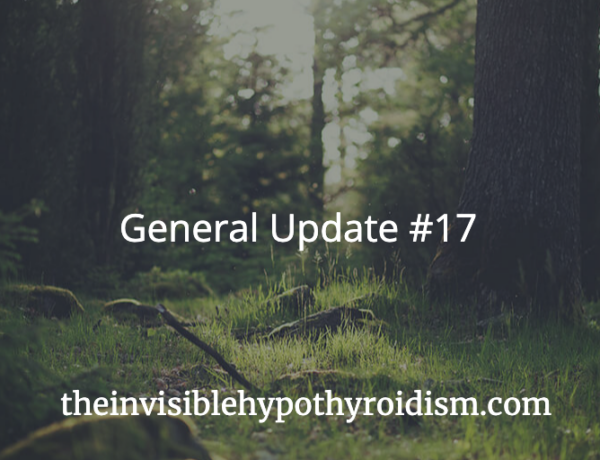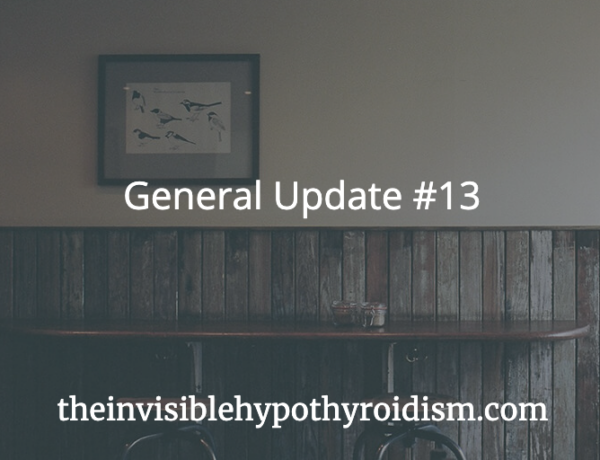Originally published on 12th May 2016 Last updated on 7th June 2024
Author’s Note: I originally wrote this article in May 2016, when there were no other mentions of thyroid conditions ‘flaring up’ anywhere at all. I searched online, in books and asked my doctor, but there was no recording of what I experienced. So I did what I do best: I recorded my own experience of what a flare felt like to me, and it resonated with thousands of you! And now the term ‘thyroid flare’ or ‘thyroid flare up’ is well-used. This article is where it was birthed!
I began referring to days when my hypothyroidism or Hashimoto’s symptoms were particularly bad as a ‘bad thyroid day’. However, after a while, I felt that the term ‘thyroid flare’ or ‘thyroid flare up’ felt more accurate.
Other people may use ‘Hashimoto’s flare’, ‘Hypothyroidism flare up’ etc. but they all have the same basis.
I’ve had thyroid flare days when my thyroid condition hasn’t been under control but also when it has!
My hypothyroidism is stable and levels are optimised, and the Hashimoto’s is currently in remission, yet I still experience thyroid flares from time to time.
What Is a ‘Thyroid Flare Day’?
A thyroid flare is defined by an increase in symptoms of your thyroid condition, usually due to one of the causes listed below. A flare usually lasts for somewhere between one day to a few weeks. The most common amount of time reported is a few days.
If you’re feeling that your flare is lasting for much longer than this, then it may not be a flare up, but a permanent dropping of your thyroid hormone levels. So please have this investigated.
After all, flare ups are not associated with a drop in thyroid hormone levels, but are more a reaction to overexertion which takes your body a day or two to recover from. Read more here.
Some people call an increase in thyroid antibody levels (after having them low for quite some time) a flare up. And others also use the term to describe a change in thyroid hormone levels. I tend not to. I think this is confusing!
Symptoms can differ from person to person, though the most commonly reported in a flare up are:
- Increased fatigue
- Heaviness (as if your body is being weighed down)
- Worsened mental health
- Brain fog
- Migraines
- Flu-like symptoms (aches and pains)
- Dizziness
- Switching between feeling really cold and really hot
Related post: Thyroid Patients Explain How Their Flare Ups Feel
What Causes a Flare Up?
These are the most common triggers according to thyroid patients:
- Drinking alcohol (even just one drink can trigger a flare in some)
- Eating a lot of sugary or processed food / not giving your body enough nutrient dense food. (for example, it may follow the Christmas period when a lot more processed food is consumed and replaces more nutrient-dense and a wider range of foods)
- Consuming a food your body does not like – an allergen, intolerance or sensitivity etc. (such as gluten or dairy)
- Mental or physical overexertion – See the spoons post. (may occur after a busy vacation / holiday, lots of social events or busy work period)
- High amounts of stress
- Not sticking to a predictable sleep routine (see tips for this here)
- Viral, bacterial, fungal infections (illnesses caught from family members, ear infections,tonsillitis etc.)
- Being on your period or due to start on your period (hormonal fluctuations)
- Pregnancy (more hormonal fluctuations, plus it’s easier to overexert yourself!)
I asked the thyroid community to share the causes of their flare ups here.
If you’re stuck in a flare cycle (you experience them a lot), it may be because you’re doing something like this:
1. Over exercising.
2. Doing all the things (saying ‘yes’ to everything).
3. Running yourself in to the ground tired.
4. You’re forced to stop exercising and running around because your body collapses.
5. You’re forced to rest and recuperate.
6. When you feel better, you go back to number 1 again. It repeats over and over.
So in order to prevent or reduce future flares, we need to break this cycle!
How Can I Avoid Flare Ups in Future?
Each time you experience one, try to pinpoint which things (such as those listed above) may have contributed to it. Did you encounter any of these in the run up to your flare starting? Obviously the main thing to do here is then avoid them in future if possible, so as to reduce the chances of another flare.
Key areas that can help:
- Some people find relief from flare-ups when they eliminate a food allergy, intolerance or sensitivity, such as gluten. Around 90% of people with hypothyroidism have the autoimmune disease Hashimoto’s, which is the cause for their hypothyroidism. [1] And a lot with Hashimoto’s seem to do better on a gluten-free diet. Read more here.
- You can also look at quieting the immune response by lowing your thyroid antibodies if you have Hashimoto’s, which may even lead to the condition being in remission. By lowering thyroid antibodies, we’re told that this puts the condition under control and means it is better managed, reducing symptoms and flare ups. See this article for ways to do this. My Hashimoto’s going in to remission has drastically reduced the amount of flares I get from once a month to once or twice a year.
- Supporting your immune system and body as a whole with good nutrition, supplements such as Vitamin C, D and Selenium, adequate sleep and keeping stress levels low where possible can also help.
- Ensuring you are also addressing any adrenal dysfunction is also very key, as “hypothalamic-pituitary axis dysfunction” often goes hand in hand with hypothyroidism. Read more about this here.
- Having your thyroid levels and nutrient levels tested regularly and ensuring they are all optimised is also key to feeling well with thyroid disease.
- Learning how to manage your ‘spoons‘ is often key.
What Should I Do in a Flare Up?
First and foremost, it is important to say that if you’re feeling incredibly unwell, then you should always see your doctor in case something more serious is going on. If what you initially think is a flare actually carries on for weeks or months, it is probably more likely a sign for a thyroid medication dosage adjustment or need for other investigations.
How To Manage Flare Ups When They Happen
The bad thyroid days are a part of having hypothyroidism that I have learned to accept with time, but I did, at one point, think I would be able to make a 100% recovery back to full health, without any flare ups ever again. But you know what? No one person is in perfect health every single day of their lives. And so it’s perfectly normal to expect flare ups in symptoms from time to time.
Now I realise it’s OK and normal to have bad health days. My health is always going to require close monitoring to try and keep it on track as much as possible.
- On a flare day, try to rest, keep warm, read or put on a film, drink lots of warm drinks such as hot water and lemon, or herbal tea, and keep yourself well-hydrated as much as possible.
- Choose nourishing food, consider bone broths and if you can’t cook and must order takeaway, consider the many ‘healthy takeaway’ options now available. More nutrient-dense food that is going to help your body recover quicker can really help how you feel. I avoid sugar and caffeine.
- If you want to call a friend or two for some company, do. But if you don’t feel sociable, then that’s OK too.
- Where you can, try to listen to your body and let it have whatever it needs to get over the flare. I often like to try and get in the bath (if I have the time) as this helps my body loosen up, but hot water bottles can also really help with this too, especially if you’re sat at a work desk for example.
- On days where I have had to work or otherwise didn’t have the luxury of just resting in front of the TV or in bed, I have compromised. I can try to limit how much work or other commitments impede my recovery from a flare. For example, seeking permission to work from home, working altered hours until the flare has passed, replacing walking to and from work with transport to save energy, or otherwise speaking to my line manager about suitable adjustments.
- If making changes surrounding my work isn’t an option, at the very least I can support recuperating outside of work as much as possible. I limit how much unnecessary activity I do and maximise resting and recuperation time instead. We have to say “no” sometimes.
Related Post: Surviving Thyroid Flare Ups When You’re a Parent
It’s OK to not be 100% well everyday. It’s OK to look after yourself.
Don’t over-do anything if you can, as it is likely to make it worse.
What are thyroid flare ups like for you?
You can click on the hyperlinks in the above post to learn more and see references to information given.
References:
[1] https://www.ncbi.nlm.nih.gov/pubmed/3066320

The book Be Your Own Thyroid Advocate: When You’re Sick and Tired of Being Sick and Tired, which builds on this article in detail.







